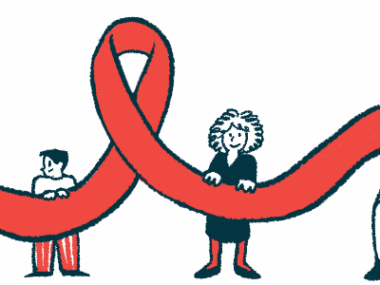New study testing feasibility of remote data collection for ALS trials
MDA and MTPA teaming up on ways to make better use of digital technology
Written by |

Is it feasible to remotely collect health data from people with amyotrophic lateral sclerosis (ALS)? And would doing so help in gauging disease progression among patients?
That’s what a remote observational study called ALS Go-Digital is now trying to assess.
If validated, the approach could pave the way to fully remote decentralized clinical trials that require little to no travel to study sites. That potentially could significantly increase the number of patients who are willing or able to participate in clinical studies, which, in turn, may accelerate treatment development.
The ongoing research study, launched in September, is a collaboration between the Muscular Dystrophy Association (MDA) and Mitsubishi Tanabe Pharma America (MTPA), which markets the ALS therapies Radicava and Radicava ORS.
“We are excited to be collaborating with Mitsubishi Tanabe Pharma America on this important study,” Sharon Hesterlee, PhD, chief research officer at the MDA, said in a press release, adding, “This could save countless hours and valuable resources which participants must spend at research sites, when they could be spending time with loved ones.”
Study tapping into MOVR database to improve remote assessments
For its part, MTPA said it’s “proud” to work with the U.S.-based nonprofit on this study.
“MTPA has supported MDA in their work to empower those living with ALS for several years,” said Yasutoshi Kawakami, MTPA president.
“Patients are at the forefront of everything we do, and I look forward [to] learning more about how remote data can help support those living with ALS and their caregivers,” Kawakami said.
ALS is a neurodegenerative condition marked by progressive muscle weakness, which renders patients less able to perform their regular daily activities over time. As the disease progresses, patients’ ability to move on their own and travel also is impaired, so many are not able to participate in clinical trials that require constant in-person monitoring.
Remote assessments could provide an alternative for these patients, enabling more people to participate and posing less of a burden — even for those willing and able to travel long distances to a clinical site.
However, to date, many measurements collected remotely are still not validated as good alternatives to in-person assessments performed by a neurologist.
The researchers in this study aim to address that, with a goal of validating such measurements and determining the best method of data collection for tracking disease progression at a patient’s own home.
Repurposing the data collected by MOVR during regular clinic visits lays the foundation to validate and increase acceptance of outcomes for fully remote, decentralized ALS clinical trials, which require little to no travel time on the part of participants.
The study is recruiting 75 people from the 2,000 ALS patients currently enrolled in the MDA’s 10-year-old NeuroMuscular ObserVational Research (MOVR) database, which gathers longitudinal data from patients’ medical records during routine visits to MDA Care Centers. There are more than 150 centers across the U.S.
Over one year, digital devices will be used to monitor a number of measures, such as physical activity and sleep, ALS symptoms, and changes in hand and finger dexterity.
Fitbit smartwatches will be used to track daytime physical activity and sleep patterns. The fine motor function of participants’ hands and fingers will be assessed by a proprietary MTPA-developed smartphone app called ALS HANDS. Finally, an app-based electronic Clinical Outcomes Assessment platform will monitor ALS symptoms using self-reported, gold-standard ALS measurements.
This remote data will be paired with the clinical data gathered in the MOVR database to determine if the digital measures are accurate enough to replace some of the clinical measures that are currently employed.
“Repurposing the data collected by MOVR during regular clinic visits lays the foundation to validate and increase acceptance of outcomes for fully remote, decentralized ALS clinical trials, which require little to no travel time on the part of participants,” Hesterlee said.





